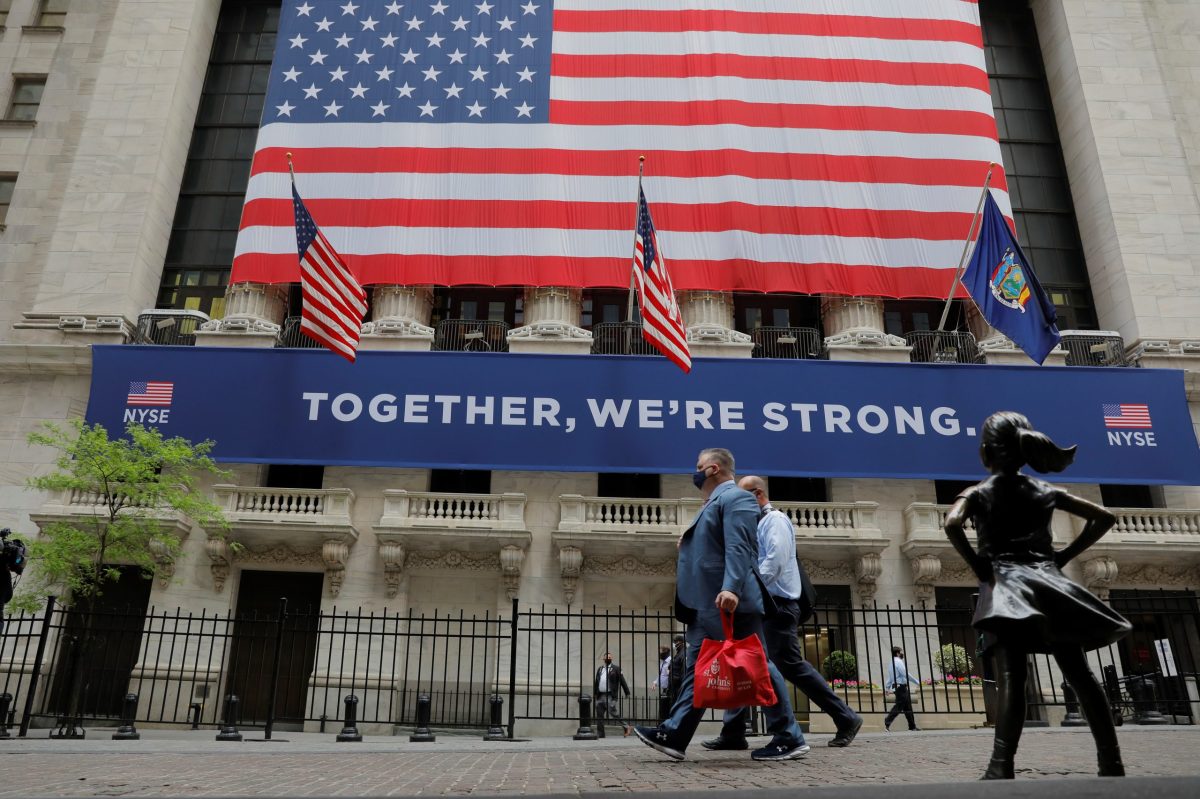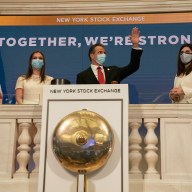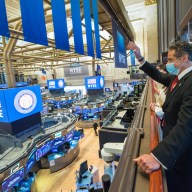BY JOHN MCCRANK
The New York Stock Exchange partially reopened the trading floors at its iconic 11 Wall Street building on Tuesday for the first time since March 20 when the bourse was forced to go all-electronic due to the coronavirus pandemic.
The Intercontinental Exchange Inc’s <ICE.N> NYSE floor will be different, with protective masks, strict social distancing requirements, and just around a quarter of the people, NYSE Chief Commercial Officer John Tuttle said in an interview. Still, he says the reopening is meaningful.
“The floor represents so much more than the several tens-of-thousands of square feet it occupies,” he said. “It’s a symbol of America, and it’s a symbol of capital markets; it’s a symbol of the economy and after two months of the country and essentially the world being offline, we want to lead from the front.”
The NYSE said most of its designated market makers, who oversee trading in the exchange’s 2,200 listed companies, will continue to work from home, as will most exchange employees. The reopening bell was rung by Governor Andrew Cuomo.
The 100 or so traders, regulatory, and operational staff heading into the building, in a still-largely deserted lower Manhattan, have been asked to avoid public transportation, and everyone entering will be screened for signs of the virus.
The NYSE floor is the last physical U.S. stock trading venue, as a slew of all-electronic competitors have emerged and eaten away at the Big Board’s once dominant market share.
Since the move to electronic-only trading, there have been no major disruptions, even with record volumes and volatility, prompting rivals to say the floor, where stocks have changed hands since 1792, has no real utility.
The NYSE says recent data show there was less volatility and tighter bid-ask spreads for NYSE-listed stocks when floor brokers were present, translating into millions of dollars a day in savings for investors.
Today I ring in the start of the trading day and the return of traders to the floor of the NYSE. In the two months the floor was dark, NYers bent the curve and slowed the spread of this virus. #NewYorkTough https://t.co/sef84ZRzNK
— Andrew Cuomo (@NYGovCuomo) May 26, 2020
Updated a 9:50 a.m.



































